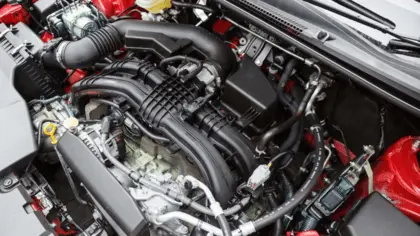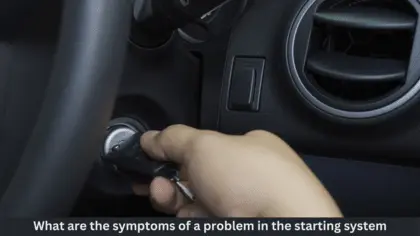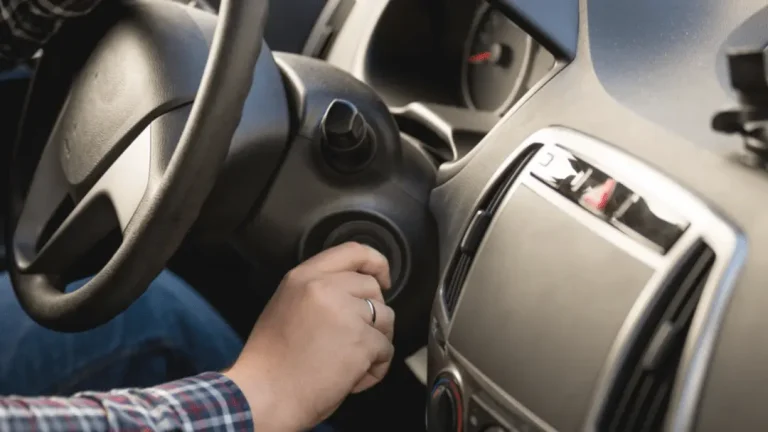If your car hesitates to start but runs fine once it’s running, there are a few potential causes. Simple causes like a clogged air filter or more major problems like an issue with the fuel system might be the cause. A skilled technician can identify the issue and advise you on the appropriate course of action. In the meantime, here are a few things you may check on your own to determine if you can easily start your automobile.
How to fix a car that hesitates to start

A car that hesitates to start but runs fine once it’s running could have a few different issues. It’s important to have a qualified mechanic diagnose the problem to be sure, but there are a few things you can check yourself.
One potential issue is a dirty air filter. A dirty air filter can restrict airflow to the engine, which can make it harder for the engine to start. You can check the air filter to see if it needs to be replaced.
Another potential issue is a problem with the fuel system. If the fuel system is not working properly, the car may have trouble starting. You can check the fuel system by opening the hood and looking for leaks. If you see any leaks, you’ll need to have the system repaired.
If your car is still having trouble starting, it’s possible that there is an issue with the starter or battery. You can test the starter by turning the key to the “start” position and listening for a clicking noise. If you don’t hear a clicking noise, the starter may need to be replaced. You can test the battery by turning on the headlights. If the headlights are dim, the battery may need to be replaced.
Related battery: Best battery for Subaru Outback
What are the symptoms of a problem in the starting system?

If your car doesn’t start, it could be due to a problem with the starting system. Here are three possible symptoms:
1. The engine cranks but doesn’t start
If you turn the key in the ignition and the engine cranks but doesn’t start, it could be due to a problem with the starter, the battery, the ignition switch, or a loose connection.
2. The engine starts but dies
If the engine starts but then dies, it could be due to a problem with the fuel system, the ignition system, or a vacuum leak.
3. The engine starts but runs poorly
If the engine starts but runs poorly, it could be due to a problem with the ignition system, the fuel system, or the engine problem. And if you’re experiencing any of these symptoms, it’s best to take your car to a mechanic to have it diagnosed and repaired.
Frequently Asked Questions
1. What are the signs fuel pump is going bad?
There are several signs that your fuel pump may be going bad. The most common symptom is the car’s engine stalling or misfiring when under load. This is caused by the fuel pump not being able to deliver enough fuel to the engine to maintain proper combustion. Other symptoms include the car’s engine hesitating or stuttering when accelerating, loss of power when climbing hills, and decreased fuel economy. If you notice any of these symptoms, it’s important to have your car’s fuel system checked by a qualified mechanic as fast as possible.
2. How do I know if my starter is bad?
The most common symptom of a bad starter is a clicking noise when you turn the key. If your starter is going bad, you may also notice that your car’s engine is slow to turn over or that it’s not turning over at all. If you’re experiencing either of these issues, it’s important to take your car to a mechanic for a diagnosis. Other symptoms of a bad starter include smoke coming from the starter motor, an electrical burning smell, and the starter motor overheating.
3. What is the most common engine starting problem?
The most common engine starting problem is a dead battery. If your engine won’t turn over, the first thing you should check is the condition of your battery. A dead battery is often caused by a build-up of sulfates on the battery’s lead plates, which prevents the battery from holding a charge. To clean the lead plates and remove the sulfates, you can use a Battery Desulfator.
4. How do you tell if it’s your starter or your battery?
One of the most common ways to tell if it’s your starter or your battery is to listen to your car. If you turn the key and all you hear is a click, then it’s likely your battery. If you turn the key and your car makes a cranking noise but doesn’t start, then it’s likely your starter.
5. Why is my car hard to start in the morning?
There are a few reasons why your car may be hard to start in the morning. One possibility is that the battery is weak. If the battery is weak, it may not have enough power to start the car. Another possibility is that the starter is not working properly. If the starter is not working properly, it may not be able to turn the engine over. Finally, if the engine is cold, it may be hard to start. If the engine is cold, the oil is thicker and the engine may not be able to start.
6. What are the signs fuel pump is going bad?
There are a few signs that your fuel pump may be going bad. If you notice your car is having trouble starting, or if it’s stalling more often than usual, that could be a sign that the fuel pump isn’t working as efficiently as it should be. You may also notice that your car’s engine is running louder than normal, or that the car isn’t accelerating as quickly as it used to. If you see any of these symptoms, you should take your automobile to a mechanic as soon as you can.
Summary
For a car that hesitates to start but runs fine once it’s running, there are a few potential causes. It may be something as minor as a clogged air filter, or it might be a more serious issue like a fuel system issue. So, it is important to check the problem by yourself and if you find that is a simple problem then you can fix it through our article. However, if you don’t make the way to fix it then you may go for a mechanic.

